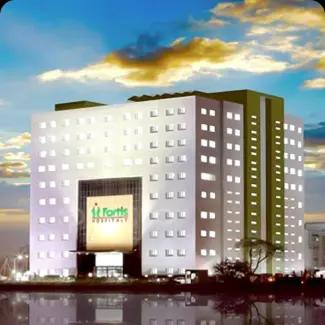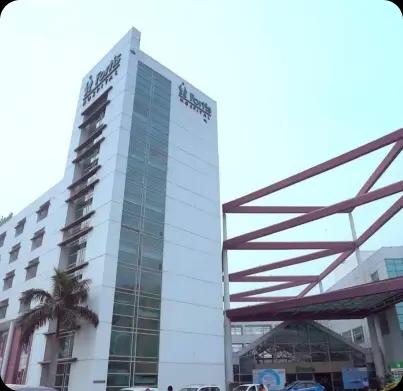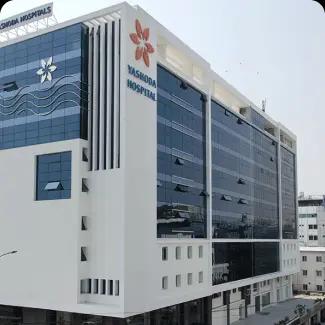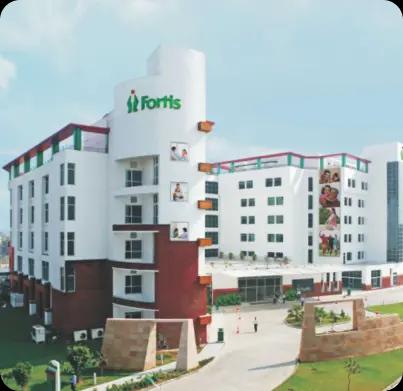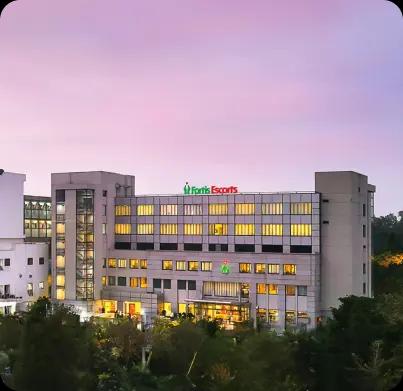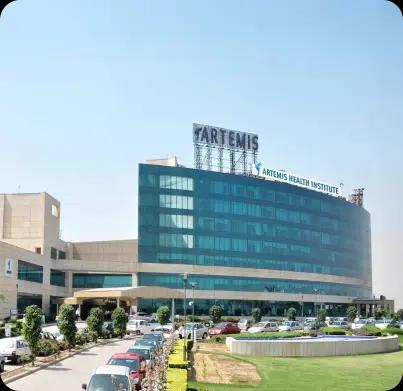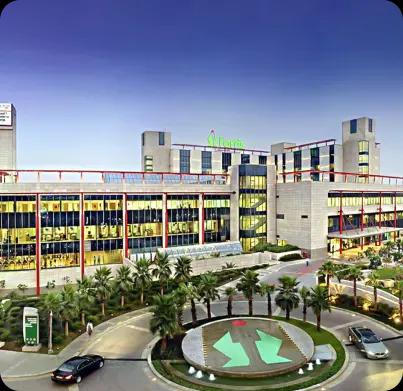
Ureteroscopy (URS)
Ureteroscopy is a minimally invasive surgical procedure used to diagnose and treat conditions of the urinary tract, particularly kidney and ureteral stones. It involves the insertion of a thin, flexible ureteroscope through the urethra to access the urinary system, allowing for visualization, stone fragmentation, and removal.
Easy Medical Visa Approvals
Travel Booking Assistance
Comprehensive Treatment Plans
Multi-Language Support
Ureteroscopy is a minimally invasive surgical procedure used to diagnose and treat conditions of the urinary tract, particularly kidney and ureteral stones. It involves the insertion of a thin, flexible ureteroscope through the urethra to access the urinary system, allowing for visualization, stone fragmentation, and removal.
Symptoms Of Ureteroscopy (URS)
Symptoms
When do you should have an Ureteroscopy
Types of conditions
There are one main types of Ureteroscopy (URS)
Treatment Options
Treatment Options
Ureteroscopy offers effective treatment for various urinary tract conditions, including:
- Stone Removal
- Treatment of Ureteral Strictures
- Biopsy
Treatment Options
Ureteroscopy offers effective treatment for various urinary tract conditions, including:
- Stone Removal: Direct visualization and fragmentation of kidney or ureteral stones.
- Treatment of Ureteral Strictures: Dilatation or incision of narrowed areas in the ureter.
- Biopsy: Collection of tissue samples for pathological analysis.
When do you should have an Ureteroscopy
- Flank Pain: Persistent pain in the side or back, often radiating to the lower abdomen.
- Hematuria: Presence of blood in the urine, visible as pink, red, or cola-colored urine.
- Urinary Urgency: Strong, sudden urge to urinate, often accompanied by discomfort or pain.
- Difficulty Urinating: Straining to urinate or experiencing incomplete emptying of the bladder.
- Urinary Tract Infections (UTIs): Symptoms include frequent urination, burning sensation during urination, and cloudy or foul-smelling urine.
Diagnosis
Ureteroscopy aids in the diagnosis of urinary tract conditions by providing direct visualization of the ureter, kidneys, and bladder. It allows for the identification of stones, strictures, tumors, or other abnormalities.
Causes and Risk Factors for Ureteroscopy
- Dehydration: Insufficient fluid intake leading to concentrated urine and stone formation.
- Dietary Factors: High intake of oxalate-rich foods, sodium, or animal proteins contributing to stone formation.
- Genetic Predisposition: Family history of kidney stones or urinary tract abnormalities.
- Medical Conditions: Certain medical conditions like urinary tract infections or metabolic disorders increase the risk.
Preparing for Surgery
Preoperative preparation may include:
- Fasting before the procedure.
- Stopping specific medications that may interfere with blood clotting.
- Bowel preparation to cleanse the colon if needed.
Treatment Details
Types:
Ureteroscopy can be performed using rigid or flexible ureteroscopes, depending on the location and size of the stone or condition being treated.
Technology and Facilities:
Advanced technologies such as laser lithotripsy and digital imaging systems are used to enhance visualization and stone fragmentation during ureteroscopy.
Recovery:
Patients typically experience minimal discomfort and can resume normal activities shortly after the procedure. Full recovery may take a few days to weeks, depending on the complexity of the procedure and individual healing.
Your journey to good health begins here

Accredited Hospitals
Nationally accredited hospitals for high-quality care

Multi-language Support
Convey your needs in the language you're most comfortable in

Travel Booking Assistance
Seamless booking assistance for your healthcare journey

Personalised Treatment Plans
A treatment journey tailored to all your preferences and needs

Unparalleled Hospitality
Experience exceptional hospitality during your stay

Easy Medical Visa Approvals
Dedicated assistance for medical visa requirements
Plan your healthcare journey with Karetrip!
India’s Best Hospitals are Partnered With Karetrip
Access World-Class facilities from top Hospitals across India
Consult with India’s most experienced doctors
Experience premium care from India’s leading specialists

Dr. C Chinnaswami
Urologist and Renal Transplant Specialist
46+ Years Of Experience

Dr. Rajinder Yadav
Urologist
44+ Years Of Experience

Dr. Reji K Varghese
Urologist
17+ Years Of Experience

Dr. Amitava Mukherjee
Urologist
21+ Years Of Experience

Dr. Anup Gulati
Urologist
25+ Years Of Experience

Dr. George P Abraham
Urologist and Renal Transplant Specialist
33+ Years Of Experience
Cost Estimation
Learn about the expenses involved in the procedure and what factors affect them.

The cost of a ureteroscopy procedure in India can vary depending on several factors, including the city or hospital where the procedure is performed, the specific type of ureteroscopy (flexible or rigid), whether any additional procedures or interventions are needed, the patient's overall health, and any applicable insurance coverage. However, as a rough estimate, the cost of a ureteroscopy in India can range from approximately ₹20,000 to ₹1,50,000 or more. This estimate typically includes the cost of the procedure itself, pre-operative tests, hospital stay (if required), surgeon's fees, anesthesia charges, and any medications or follow-up care.
Here's a table showing the estimated cost range across different cities in India:
The average cost of the Ureteroscopy (URS) in India is around ₹23,000 to ₹60,000.

₹60,000
High Cost
₹45,000
Average Cost
₹23,000
Low Cost
The LIST of AVERAGE COST of the Ureteroscopy (URS) across TOP 9 cities in India in Indian Rupee (INR) is as follows :
City
Lowest Cost
Average Cost
Highest Cost
Delhi
₹25,000
₹30,000
₹50,000
Mumbai
₹30,000
₹45,000
₹60,000
Bangalore
₹28,000
₹35,000
₹55,000
Chennai
₹25,000
₹30,000
₹50,000
Kolkata
₹23,000
₹30,000
₹45,000
Hyderabad
₹28,000
₹35,000
₹55,000
Ahmedabad
₹25,000
₹30,000
₹50,000
Pune
₹28,000
₹35,000
₹55,000
Jaipur
₹23,000
₹35,000
₹45,000
Commonly Asked Questions
Is ureteroscopy painful?
Ureteroscopy is performed under anesthesia, minimizing discomfort during the procedure. Mild discomfort or urinary symptoms may occur temporarily after the procedure.
How long does a ureteroscopy procedure take?
The duration of the procedure varies depending on the complexity of the condition being treated but typically lasts between 30 minutes to an hour.
Are there any risks associated with ureteroscopy?
Risks include urinary tract infection, bleeding, injury to the urinary tract, and rare complications such as ureteral perforation or stricture formation.
Can ureteroscopy be used to treat all types of kidney stones?
Ureteroscopy is effective for most types of kidney stones, including calcium, uric acid, and struvite stones. However, the size and location of the stone may influence treatment decisions.
How soon can I resume normal activities after ureteroscopy?
Most patients can resume normal activities, including work and exercise, within a few days after the procedure. Your doctor will provide specific postoperative instructions based on your condition.

Do you still have a query?


"I had a successful surgery at Fortis Escorts Hospital, and it was all thanks to Karetrip's help in finding the right hospital for me. The entire process was smooth and stress-free, with Karetrip handling all the arrangements and answering any questions I had. The medical team at the hospital was outstanding, and the facilities were top-notch. I highly recommend Karetrip to anyone looking for a tension-free healthcare experience."
Read MoreFatima
Chattogram


"Thanks to Karetrip, I got connected with MAX Hospital in New Delhi. The team guided me through every step – from finding the right doctor to handling travel and visas. They made a daunting process feel like a breeze. The care I received at MAX Hospital was outstanding, and I can't thank Karetrip enough for making it possible. They truly put patients first and go the extra mile to ensure a smooth healthcare journey. I'm grateful beyond words!"
Read MoreHasan
Dhaka


"At first, I was unsure about having a medical procedure done in a foreign country. However, Karetrip's team at Indraprastha Apollo Hospital made me feel much better. The hospital was very clean, modern, and had everything they needed to help me. The staff were very kind and did everything they could to make me feel comfortable. I'm really happy with how my treatment turned out, and I appreciate Karetrip for making it easy and stress-free."
Read MoreImran
Sylhet
 Google Reviews4.9/5
Google Reviews4.9/5




I had a successful surgery at Fortis Escorts Hospital, and it was all thanks to Karetrip's help in finding the right hospital for me. The entire process was smooth and stress-free, with Karetrip handling all the arrangements and answering any questions I had. The medical team at the hospital was outstanding, and the facilities were top-notch. I highly recommend Karetrip to anyone looking for a tension-free healthcare experience.
Fatima
Chattogram
 Google Reviews4.9/5
Google Reviews4.9/5




